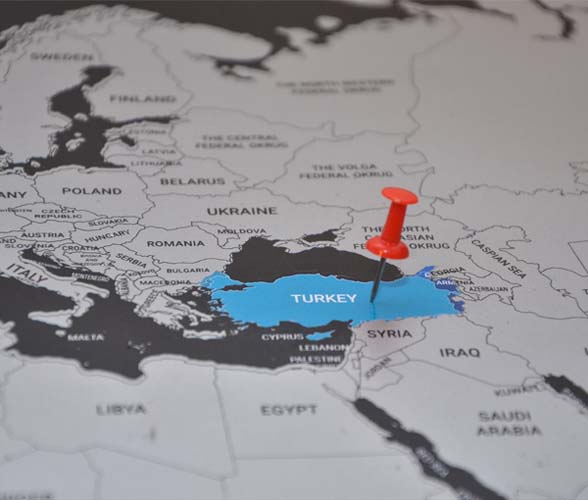Last Updated on 26/07/2023
In an era marked by economic uncertainties and market volatility, the Turkish real estate sector stands as a spot of stability and security. Despite occasional economic fluctuations, the Turkish property market has consistently demonstrated remarkable resilience, attracting domestic and international investors. This article explores the reasons why the Turkish real estate sector remains a secure investment option, impervious to the challenges posed by economic fluctuations.
Diversified Demand
One of the key factors contributing to the stability of the Turkish real estate sector is its diversified demand. Moreover, Turkey’s rapidly growing population, combined with urbanization trends, has created a constant need for housing solutions. Furthermore, as young professionals flock to major cities for better opportunities, the demand for residential properties continues to soar. Furthermore, the country’s burgeoning tourism industry attracts foreign buyers seeking second homes or vacation rentals, further diversifying the demand base. This broad spectrum of buyers ensures that the Turkish real estate sector remains shielded from the impact of any single demographic or economic factor.
Strategic Geographical Location: A gateway to opportunities

Turkey’s strategic geographical location at the crossroads of Europe, Asia, and the Middle East plays a pivotal role in maintaining the sector’s security. Consequently, the country serves as a natural hub for international trade, commerce, and tourism, providing a thriving market for commercial properties, hospitality establishments, and residential developments. The ease of access and connectivity offered by this central location makes Turkey an attractive investment destination, bolstering the stability of its real estate sector even in the face of economic fluctuations.
Government Incentives and Reforms

The Turkish government has been proactive in promoting the real estate sector as a vital driver of economic growth. Over the years, it has introduced several investor-friendly policies and reforms aimed at bolstering the market’s stability. Notably, the Turkish government offers citizenship to foreign buyers who invest a certain amount in real estate, which has attracted a steady influx of foreign capital. Additionally, measures to reduce property acquisition taxes and streamline bureaucratic processes have further enhanced the sector’s appeal to both domestic and international investors. Recently echos turns about the possibility of launching a Turkish Golden Visa Program to attract more investors.
Impressive Infrastructure Development

Turkey has made significant strides in infrastructure development, transforming its cities into modern urban centers with efficient transportation networks and improved amenities. This focus on infrastructure has led to the development of new real estate projects and added value to existing properties. As a result, the continuous growth and improvement in infrastructure make the Turkish real estate sector an attractive and secure investment option for those seeking long-term stability.
Resilient Rental Market
The rental market in Turkey has proven to be remarkably resilient, even during economic fluctuations. The demand for rental properties remains consistently high. It was driven by factors such as a growing population, an influx of students and expatriates, and young professionals seeking temporary housing options. Additionally, the rise of short-term rental platforms has provided property owners with alternative income streams, further stabilizing the rental market.
Balanced Supply and Demand Dynamics

Turkish real estate sector has seen relatively balanced supply and demand dynamics over the years. Consequently,this mitigated the impact of economic fluctuations. Besicdes, the government’s focus on infrastructure development and diversification of economic activities has supported the growth of various industries. It attracted people to different cities across the country. Therefore, this balanced development approach ensures that demand for properties is not concentrated in one particular area, reducing the risk of market bubbles and allowing the sector to weather economic storms effectively.
Yet, experts describe the current situation as an era where both demand and supply are low. Yet they expect this situation to change by the end of 2025 and the market will boom again hitting the records.
Attractive Return on Investment (ROI)

Despite economic fluctuations, the Turkish real estate sector has historically offered attractive returns on investment. Property prices have shown consistent growth over time, providing investors with capital appreciation opportunities. Additionally, the rental market’s stability allows property owners to generate a steady rental income, making real estate investments in Turkey an appealing long-term proposition for both domestic and foreign investors.
Appealing Tourism Sector
Turkey’s rich history, diverse culture, and breathtaking landscapes have made it a popular tourist destination. The tourism industry has experienced significant growth in recent years, attracting millions of international visitors annually. This boom in tourism has created a demand for vacation homes and rental properties, providing a boost to the real estate sector’s stability.
FAQ
Is the Turkish real estate sector open to foreign investors?
Yes, the Turkish real estate sector is open to foreign investors. In fact, the Turkish government has introduced several incentives, including offering citizenship to foreign buyers who invest a specific amount in real estate, making it an attractive option for international investors.
Is the Turkish real estate market affected by economic fluctuations?
While economic fluctuations can impact the real estate market in any country, the Turkish real estate sector has demonstrated remarkable resilience, owing to factors such as diversified demand, strategic geographical location, government incentives, and robust infrastructure development.
Are there any restrictions on foreigners buying property in Turkey?
No, there are generally no restrictions on foreigners buying property in Turkey. Foreigners can acquire residential and commercial properties, provided they comply with certain regulations. The process of buying property in Turkey has been streamlined for foreign investors, making it an investor-friendly market.
Which cities in Turkey offer the best real estate investment opportunities?
Several cities in Turkey offer promising real estate investment opportunities. Istanbul, the economic and cultural heart of Turkey, is a popular choice for commercial and residential investments. Other cities like Ankara, Izmir, and Antalya also provide attractive options due to their economic growth, infrastructure development, and tourism potential.
Conclusion
The Turkish real estate sector’s ability to maintain stability despite economic fluctuations is a testament to its enduring appeal to both domestic and foreign investors. Diversified demand, strategic geographical location, government incentives, thriving infrastructure, resilient rental market, balanced supply and demand dynamics, and attractive ROI all contribute to the sector’s secure footing. As Turkey works to improve its investment climate, the Turkish real estate sector is likely to remain a fortress of stability, offering promising opportunities for investors seeking long-term growth and security.



